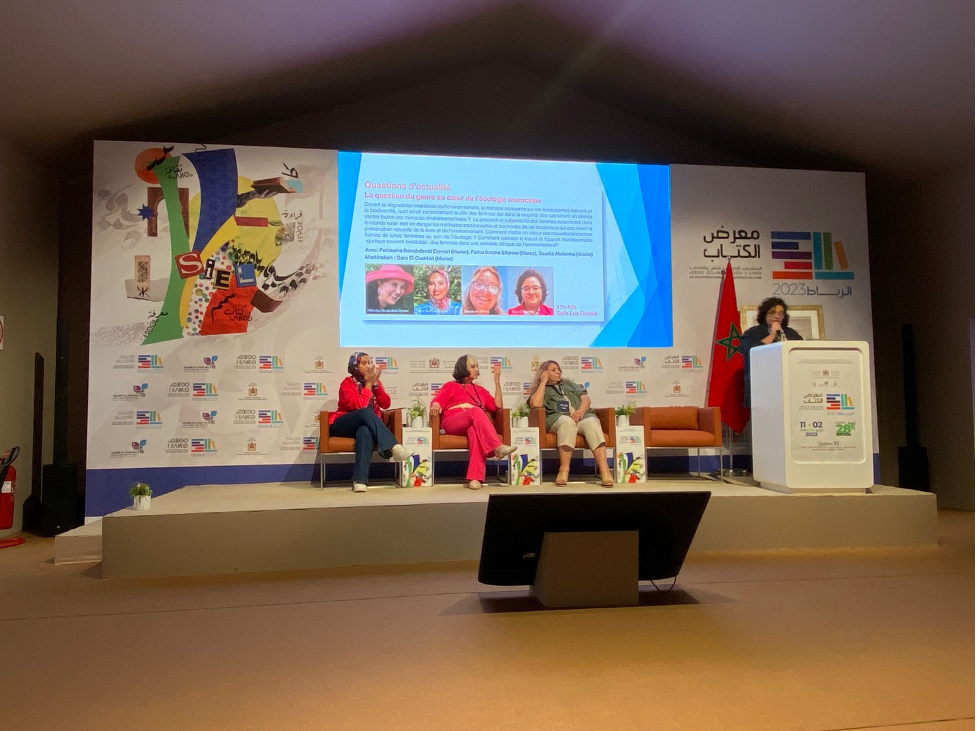
Women and ecology, what relation? that’s the question debated in a gathering of activists held in Salle Oudaya at the international publishing book fair Monday 5 June.

Women and ecology, what relation? that’s the question debated in a gathering of activists held in Salle Oudaya at the international publishing book fair Monday 5 June.

Women and ecology, what relation? that’s the question debated in a gathering of activists held in Salle Oudaya at the international publishing book fair Monday 5 June.
In the context of environmental degradation and the growing threat to the ecosystems, the precariousness and vulnerability of women, particularly in rural areas go unheard of and so do their efforts on the matter.
In order to draw attention to these concerns and explore the importance of women's participation in ecology, a meeting titled "The Gender Question at the Heart of Moroccan Ecology" took place on the fourth day of the International Publishing Book Fair at La Salle des Oudaïa. The primary objective of the event was to emphasize the role that women play in ecological matters, as well as to explore the profound impact of climate issues on rural women.
Distinguished speakers and environmental activists, Fettouma Benabdenbi Djerrari, Fatna Ikrame Elfanne, and Saadia Abderma, shared their insights and experiences, providing a multifaceted understanding of the topic. The panel discussion was expertly moderated by Sara El Oudrhiri a Ph.D. student majoring in climate issues.
Fettouma Benabdenbi Djerrari, an ecological activist and founder of an environmental association, emphasized the crucial role of women in environmental preservation and restoration efforts. She highlighted the need to empower women by providing them with education, resources, and opportunities to actively participate in decision-making processes concerning ecological matters.
"The environment is not a matter of choice; it is a necessity we need to survive." States Ms. Fettouma while calling for action to preserve the earth and sensitize the youth about the issue.
Fatna Ikrame El fanne, an environmental engineer and climate activist urged for the creation of supportive networks and initiatives allowing young women to effectively protect their environment and ensure the well-being of future generations. As she calls it “Raising awareness about climate through youth for youth.”
Throughout the discussion, the participants explored strategies to enhance the visibility and impact of women on ecological struggles. From advocating for gender-inclusive policies to creating platforms for sharing experiences and knowledge, the importance of elevating women's voices in the environmental discourse was consistently highlighted.
By placing the gender question at the core of Moroccan ecology, this conference has opened doors to transformative dialogues, inspiring individuals to actively address the environmental challenges we face today.
